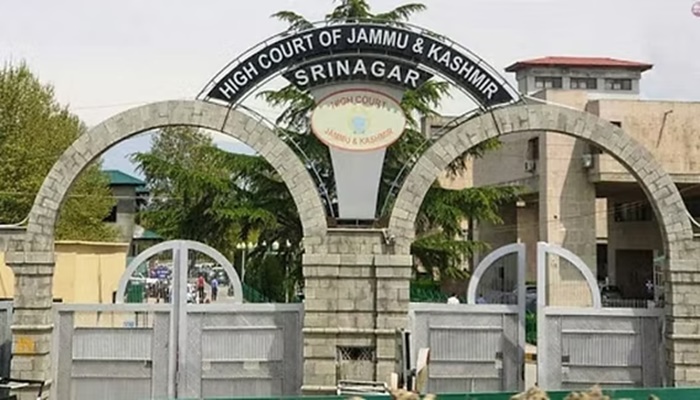A dismissed government employee fighting to be reinstated in his job for eight years, lost the case when the Madras High Court ruled against him on June 17, 2025. The reason the government employee lost his job in the first place was because his wife had filed a matrimonial dispute case against him and he had been implicated as a criminal in that case. The Madras High Court upheld this reason of dismissal- matrimonial dispute and ruled in the government’s favour.
In legal parlance, the Madras High Court ruled that matrimonial dispute should be treated as misconduct under the Tamil Nadu Government Servants’ Conduct Rules, 1973 allowing government departments to initiate disciplinary action against such misconduct of employees, once proved.
The Madras High Court further said that a public servant is expected to maintain honesty, integrity and good conduct not just inside the office but outside as well.
As pointed out by lawyers, a point to be noted here is that private sector employers also initiates disciplinary action on their employees for matrimonial offences if there’s a court conviction, and this trend is expected to continue.
Keep reading to find out how this judgement affects employees, as lawyers informed ET Wealth Online that similar rulings (dismissal from job due to matrimonial disputes) have occurred in Uttar Pradesh, Kerala, Rajasthan and other states.
How did this case start?
Here’s the timeline of events according to the order of the Madras High Court dated June 17, 2025:
- January 28, 2013: A person got a government job working as a dental assistant in the state-run hospital.
- July 13, 2017: The government dismissed this employee as he was deemed guilty in the matrimonial dispute case filed by his wife.
- February 1, 2018: This dismissed employee filed a case under Article 226 of the Constitution of India in the writ court and the court ruled in his favour by saying matrimonial dispute may not be sufficient reason for misconduct.
This government filed an appeal against this order of the writ court in the Madras High Court.
What did Madras High Court say?
According to the order of the Madras High Court dated June 17, 2025, here’s what the court said:
- The respondent (employee) was appointed as a dental assistant for a period of one year on contract basis. The contractual engagement was renewed from time to time. The respondent (employee) was implicated in a criminal case. Thus, he was disengaged by the appellants (government) vide order dated 13.07.2017. The writ court formed an opinion that the criminal case registered in a matrimonial dispute may not be an impediment for continuance of the government contractual employment.
- Under the Tamil Nadu Government Servants’ Conduct Rules, 1973, matrimonial dispute is also a misconduct and the Government Departments are empowered to initiate action against such misconducts.
- A public servant is expected to maintain honesty, integrity and good conduct both inside the office and in the society. Therefore, for the misconduct, even if it is committed in the matrimonial relationship, the Government Departments are empowered to initiate departmental disciplinary proceedings.
Judgement: “Accordingly, the writ order dated 01.02.2018, passed in W.P. (MD) No.248 of 2018, is set aside and the writ appeal stands allowed. No costs. Consequently, the connected miscellaneous petition is closed.”
What does Rule 19(2) of Tamil Nadu Government servants conduct rules say?
In this case cited here, the employee was dismissed due to violation of Rule 19(2).
Vinay Joy, Partner at Khaitan & Co says: “The judgment does not clearly specify the nature of the matrimonial misconduct the Madras High Court was addressing. Rule 19(2) of the Tamil Nadu Government Servants’ Conduct Rules, 1973 can be interpreted to mean that acts involving moral turpitude within the marital sphere constitute misconduct. The primary misconduct contemplated under this rule is ‘bigamy’ which most states’ government / civil servants’ rules seem to prohibit.”
Joy adds: “While government / civil service rules typically classify specific matrimonial acts – such as bigamy, dowry, and neglect of wife and children (which, incidentally, are all offences in India in some form) – as misconduct, most state service rules do not contain the language around ‘moral turpitude’ like the one seen in the Tamil Nadu Rules. For example, the government service rules in Maharashtra, Andhra Pradesh, Haryana, Karnataka, Telangana, Gujarat and West Bengal do not contain such language.”
Joy adds that due to the lack of specific details around the facts contested here, it is unclear if the Court is simply referring to bigamy or to some other form of ‘matrimonial dispute’ of a similarly serious nature – or whether it is using the term ‘matrimonial dispute’ in its ordinary sense.
Do other states also follow similar rules for their employees?
Vedant Choudhary, Associate, SKV Law Offices, says “In addition to Tamil Nadu, several other states across India recognize matrimonial misconduct as valid grounds for disciplinary action against government employees. Jurisdictions such as Uttar Pradesh (as seen in Khursheed Khan V. State of Uttar Pradesh), Rajasthan (Laxman Singh V State of Rajasthan and Ors.), Karnataka, and Kerala have all upheld similar principles.”
Aditya Chopra, founder and managing partner, The Victoriam Legalis says: “As per the Madhya Pradesh Civil Services (Conduct) Rules, 1965, no government servant who has a wife, shall contract another marriage without first obtaining the permissions of the Government provided that such subsequent marriage is permissible under the personal law applicable to such government servant. A similar rule exists for Uttar Pradesh as well under Section 29 of the UP Government Servant’s Conduct Rules, 1956.”
Choudhary says: “Even where not expressly adjudicated, many state conduct rules—such as those in Andhra Pradesh, Telangana, and others—require prior permission of relevant authorities for remarriage. A violation of such provisions constitutes misconduct, thereby subjecting the employee to departmental proceedings.”
What about private sector employees?
Smriti Jaswal, Senior Associate, Accord Juris LLP, a law firm says: “As far as the private corporations and its employees are concerned, they are bound by their own HR Rules, Regulations and Policies that have been laid down to maintain the integrity of their company that very strictly bind all its employees.
Joy from Khaitan and Co says: “We do see private employers initiating disciplinary action against employees in relation to matrimonial offences when the employee has been convicted by a court in relation to the same and the same is likely to continue being the practice.”
Joy adds: “Such instances in private sector employment are generally governed by contractual terms and standing orders / internal service rules, which, in my experience, typically do not regulate conduct in personal relationships / private life. They usually limit themselves to conduct during the course of, or in connection with, employment. This is for two main reasons:
- Regulating an employee’s conduct in their private life may be considered an overreach by the employer, and the information a private employer can seek from an employee is also strictly regulated by privacy law; and
- the practical difficulties posed by the private nature of such misconduct during disciplinary inquiries in terms of summoning witnesses, gathering evidence etc.”
Jaswal says matrimonial dispute can be the reason behind denial of higher promotion in some companies. She says: “Interestingly, some companies are promoting their employees to a senior level such as VP, etc after they conduct background checks and interview people in the employee’s circle, as these officials in such senior positions are going to be representing products and act as the face of the company. Therefore, in the event in the private sector you want to climb up the ladder – there is no room whatsoever for any indiscretion and having a criminal record more specifically one where there is a matrimonial dispute, will reflect negatively on your leadership skills and your ability to maintain interpersonal relationships.”
This judgement is a matter of interpretation
Kheyali Singh, Associate Partner, Singhania & Co, says: This judgment of the Hon’ble Madras High Court could be a milestone in the service law with regard to misconduct for being implicated in a matrimonial dispute. However, it is a matter of interpretation, and the said judgement could be challenged before the Hon’ble Supreme Court of India.”
Singh adds: “There is no such rule in India, where matrimonial dispute is considered as misconduct due to which a government employee can face action like getting suspended or fired. There is no definition under the rules that considers implication in a matrimonial dispute as misconduct. The relevant rule is rule 19 of Tamil Nadu Government Servants’ Conduct Rules, 1973 which could be looked into. Further the judgement of the Hon’ble Division Bench of the Madras High Court is a matter of interpretation of the concerned service rules. There is no state which consists of any rule that getting involved in a matrimonial dispute is considered to be a misconduct. However, it is a matter of interpretation and if an FIR is registered and prosecution begins then the Department has the discretion to initiate disciplinary action against the delinquent employee.”




















